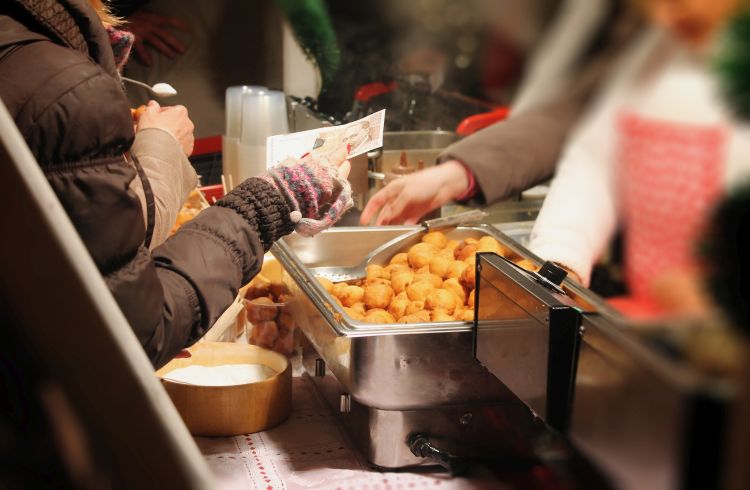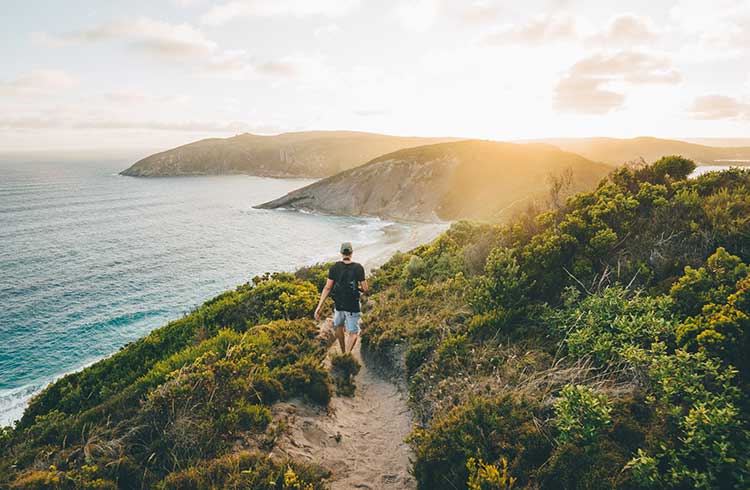How to Keep Your Money Safe from Theft While Traveling
Coronavirus (COVID-19) and travel: The situation around the world is changing dramatically. Various governments have changed their travel warnings to restrict travel during this time. To understand how this may impact cover under your policy, please go to our FAQs and select your country of residence.
For the latest travel warnings and alerts around the world, read about lockdowns and border restrictions.
Cash vs cards – which is best for travelers? Use these tips to keep your money safe and avoid theft or ATM troubles no matter where you are in the world.
Shares
 Photo © Getty Images/VukasS
Photo © Getty Images/VukasS
Cash or cards
We think it's a good idea to have a combination of both cash and cards while you travel, that way you are covered for a myriad of scenarios which could (and often do) happen while traveling.
Cash
It's always handy to have a few dollars in the local currency before you arrive so you can catch a bus or taxi and not be forced to change money at the airport or border.
Most countries now have ATMs that dispense local currency to foreign cardholders. But there are still parts of Asia and Africa where cash is king and ATM's are non existent, so check before departure and if necessary, carry enough cash to tide you over.
Having some cash on you also gets you out of a bind, should your bank card get swallowed up by an ATM.
Try to get small denominations too, that way if some money is flogged, you're not losing everything or that scammer isn't getting away with much of your holiday savings.
Cards
Beware of bank fees associated with card transactions overseas and withdrawing cash from foreign ATMs: check with your bank/provider before departing. Also check the expiry date on your card and that it will be accepted where you're going.
Let your bank know when you are going overseas and when you will return in case of suspicious transactions post holiday. Also so they don't block you out when you start using the card overseas.
Keep a copy of the emergency assistance numbers for your bank somewhere safe should your card get stolen or swallowed by an ATM. Some travel insurance companies may also cover the cost of replacing the card if it is stolen.
An important note about cards if you are taking both a travel money card and credit cards. Most hotels and cruise ships will not accept travel money cards as a form of charge card when checking in or for tabs due to no name being present on the card so it's important to also take a card with your name on it.
Money safety tips
- Travel light and take only what you need. Empty out any unnecessary cards from your wallet or purse before you go – that way there's less bulge to attract thieves and less to lose.
- Keep your money safely hidden under your clothes and out of sight; a money belt is a good idea. Do NOT keep your valuables in a 'bum bag' or 'fanny pack' – they are easy and obvious targets for thieves. If you carry a bag, make sure it has a shoulder strap and wear it across your chest, rather than on one shoulder, with the opening near your body.
- You maybe enjoying lunch or just taking a break from walking around but it can make you a prime target for pickpockets. Keep your bag on you and close. If dining out, keep it on you and put it in your lap. Never leave it on the back of a chair or on the floor next to you like you may do when you're at home.
- It sounds so obvious, but, split up your valuables so that your money, cards and passport are not in one place and if one 'area' gets hit you still have some resources. If you put all your money, passports and cards in one money belt and that gets stolen you really are in the poo.
- Only carry enough money in your wallet that you will need for that day, and leave the rest in your inside money belt, hidden pocket inside your clothes, or in your guest house or hotel's safe. Sometimes, it's wise to take out only small amounts from the bank even if it means higher bank fees – check with your bank before leaving home as to the charges you'll incur.
- If you need to take money out, try to use an ATM inside a bank or hotel rather than on the street and avoid counting the cash before walking away. Skip using the ATM at night. Also that nice local isn't there to "help you" with the ATM, they are likely there to skim your card.
- And don't walk around with credit cards, air tickets and passport (which you don't usually need day-to-day) in the same spot as that 50 Baht you are going to use to buy a pineapple drink.
- Never let your travel money card or credit card out of sight when you're paying for something to avoid fraudulent use of it, and destroy any carbon sheets from the receipt. When using ATMs, be aware of others around you and avoid letting them see you enter your PIN or take out your cash.
If you lose your money or card
It's a great idea to prepare a small 'Emergency fund' which is usually about US $300 dollars cash and is split up and distributed across all your gear (deep inside the lining of each of our rucksacks, under the soles of our shoes, inside jacket linings). That way you have at least something to tide you over until you can get more money out or get that replacement card.
Get a travel insurance quote for Worldwide
You can buy at home or while traveling, and claim online from anywhere in the world. With 150+ adventure activities covered and 24/7 emergency assistance.
Related articles
Simple and flexible travel insurance
You can buy at home or while traveling, and claim online from anywhere in the world. With 150+ adventure activities covered and 24/7 emergency assistance.
Get a quote

9 Comments
Hi guys i find this website REALLY helpful and was hoping someone could tell me how i should be taking money into cuba and peru? Ive heard its super difficult coming from Australia.?
Hi Racheal,
Try posting your question on Ask a Nomad https://answers.worldnomads.com/
I haven't been to Cuba or Peru, but our community of travellers will be sure to help out :)
All the best for your travels!
Amelia, World Nomads
I had 3 credit/debit cards and 3 atm cards when i went travelling rtw. Lost only one when it was swallowed by an buggery atm in thailand. Def don't carry them all together, good as backups in case either your luggage goes missing or you get mugged. But luckily never had these events quite happen fully thankfully
When travelling in South America I keep most of my money in my savings account and only transfer over about $300cad at a time to my cheq account. ATMs in South America don't recognize the money in my savings account, so it shows up as $0. That way if someone steals my card and pin or I'm drugged and brought to an atm (it happens) it looks like I only have $300 in my account. I find that $300 is enough to cover expenses for a week but also not enough that the loss would be a huge hit :) I've never been robbed but it gives me piece of mind.
I'm a firm believer in transferring whatever money I think I'll need into my PayPal account and using that for ATM withdrawals. It not only limits the amount that can be stolen, but PayPal doesn't charge international transaction fees for foreign currency. PayPal is the only debit card I take when traveling to foreign locations.
For all of our trips to Indonesia, we rely on ATM machines. They are readily available in towns,cities, airports, and the exchange rate is better than doing it at home in the USA. We have never had a problem or issue.
Beware of bogus ATM's. I always go inside of a bank to use the ATM in the bank that is maintained by the bank. Watch a few youtube videos to see how scammers can bugger an ATM to steal your info and passwords.
As someone pointed out earlier, be sure to travel with two credit cards with two different account numbers. While traveling, and away from any kind of communications for a few weeks, we had someone hack one of our credit cards. The company froze the account. Their only recourse was to issue us a new card; however, there was no way to get a new card to us while we were outside the US and in an active travel period of our journey. Luckily, we had the second card. So the card was not physically stolen from us, but its number and use was--at a location a half a world away. When you travel with two cards, keep them separate, too. If you are a traveling duo, have each carry a separate card. If you are traveling solo, carry them in two separate places. There has to be a better way to resolve this issue, but US credit card companies refuse to use PINs and no one has a good solution to getting new cards to remote places.
I travel with a Revolut credit card, designed for travellers you top it up from your UK Bank account and manage everything from your phone. You can block or suspend your card from your phone as well and keep track of spending and FX rates on the App.